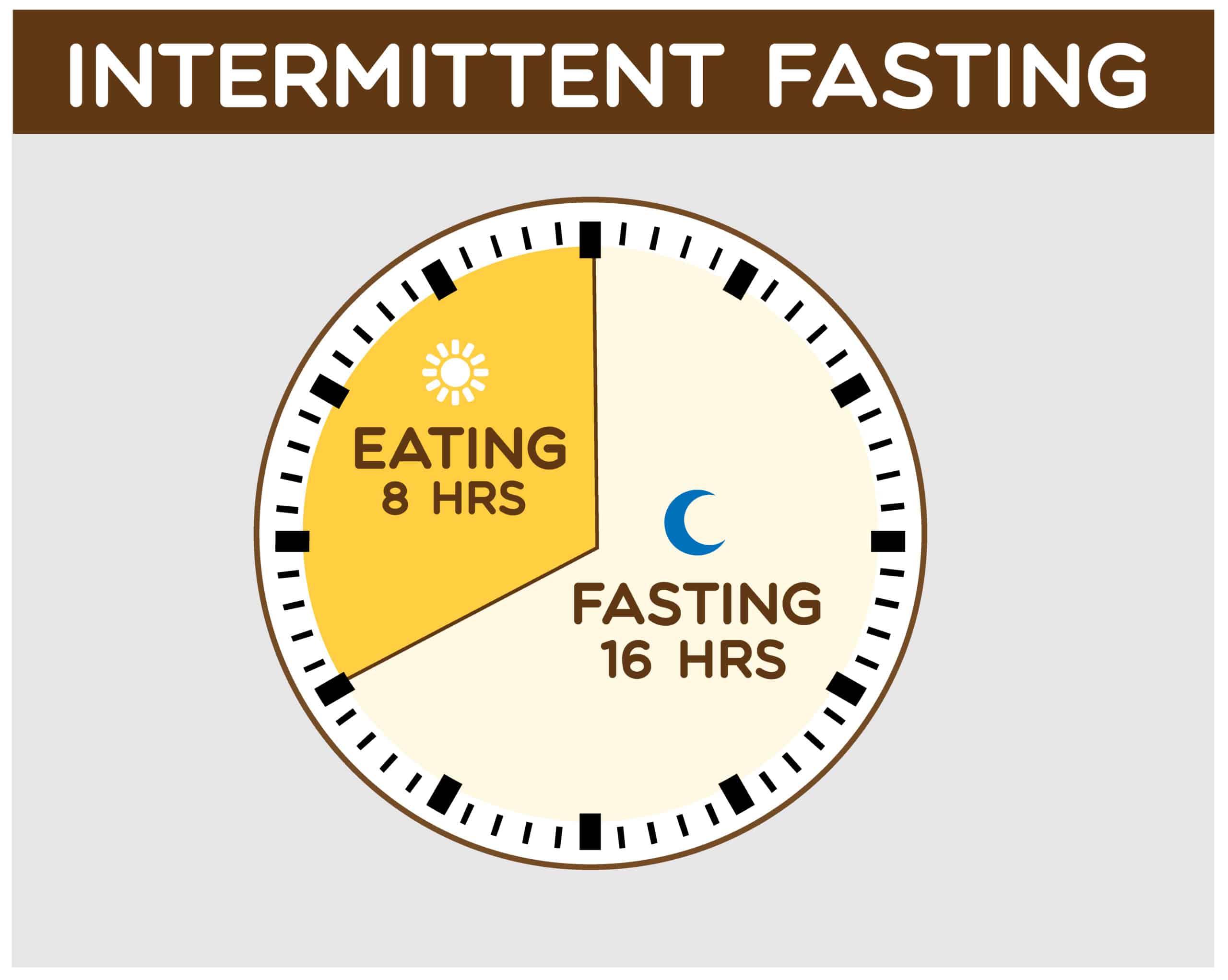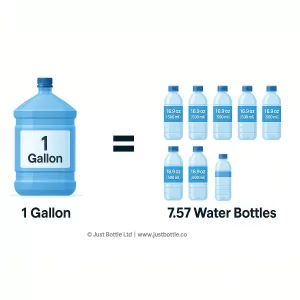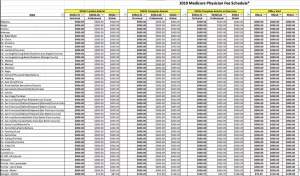Intermittent fasting means confining your daily eating to a specific window of hours. It’s gained traction for weight reduction and overall health benefits. For successful weight loss, knowing which foods to eat while following intermittent fasting matters.
Fasting has been observed for millennia and remains a central practice in many religions and cultures across the globe.
Modern variations have reinvented this age-old practice for today’s lifestyles.
One widely followed approach is 16/8 intermittent fasting. Advocates say it’s simple, manageable, and doable long-term for losing weight and enhancing general well-being.
This article outlines how the 16/8 method works and whether it may be suitable for you.

What is 16/8 intermittent fasting?
The 16/8 method consists of limiting caloric intake to an 8-hour period each day and fasting for the remaining 16 hours. During the fasting phase you refrain from food but may drink water and other zero-calorie beverages like plain coffee or unsweetened tea.
You can follow this pattern as often as you like — from a couple of times a week to every day — based on your preference.
This approach has become popular with people aiming to lose weight and reduce body fat. The 16/8 pattern is also thought to help with blood sugar regulation and may have benefits for lifespan.
Unlike many diets that impose rigid rules, 16/8 intermittent fasting is straightforward and can yield noticeable results with relatively little upheaval to your usual eating habits. It’s generally viewed as less limiting and more adaptable than many diet plans and can fit into a variety of routines.
SummaryWith 16/8 intermittent fasting, you confine your eating to an 8-hour window and fast for the remaining 16 hours. This routine may aid weight loss, improve blood glucose control, and support longevity.
Meal plan and getting started
Here’s what to know when beginning 16/8 intermittent fasting.
Choosing a time window
To begin, select an 8-hour window and limit your meals and snacks to that timeframe.
Common 16/8 eating windows include:
- 7 a.m. to 3 p.m.
- 9 a.m. to 5 p.m.
- 12 p.m. to 8 p.m.
- 2 p.m. to 10 p.m.
Many find noon to 8 p.m. convenient because it means fasting overnight and skipping breakfast while still having a full lunch and dinner plus a few snacks.
Others prefer 9 a.m. to 5 p.m., which allows for a substantial breakfast around 9 a.m., lunch near noon, and an early light dinner or big snack around 4:30 p.m. before the fast starts.
Ultimately, choose the schedule that aligns best with your daily life.
Setting alarms for the start and end of your eating window can help remind you when to eat and when to resume fasting.
Foods list and meal plan
To get the most benefit from this approach, focus on nutritious, minimally processed foods and drinks during your eating window.
Eating nutrient-dense items helps provide balanced nutrition and supports healthy weight management. Aim to include a range of whole foods at each meal, such as:
- Fruits: apples, bananas, berries, oranges, peaches, pears, tomatoes, etc.
- Vegetables: broccoli, Brussels sprouts, cauliflower, cucumbers, leafy greens, etc.
- Whole grains: barley, buckwheat, quinoa, rice, oats, etc.
- Healthy fats: olive oil and avocados
- Protein sources: eggs, fish, beans, meat, poultry, nuts, seeds, etc.
Consuming calorie-free drinks like water and unsweetened coffee or tea, even while fasting, helps control hunger and maintain hydration.
Try to reduce intake of highly processed foods such as packaged snacks, deep-fried items, sugary beverages, and most frozen convenience meals, as these can undermine the benefits of 16/8 intermittent fasting.
SummaryTo start 16/8 intermittent fasting, pick an 8-hour eating window and keep your food intake within that period. Follow a balanced diet centered on whole foods.
Benefits of 16/8 intermittent fasting
One of the chief perks of 16/8 intermittent fasting is its simplicity. It can lower the time and expense associated with meal prep and cooking across the week.
This method has been linked to a range of health benefits.
Increased weight loss
Narrowing your eating window to a limited number of hours can reduce total daily calories, which may help with weight loss.
Indeed, research indicates that fasting can support weight reduction.
For instance, one review showed that 11 of 13 intermittent fasting studies reported statistically meaningful weight loss among participants.
Improved blood sugar control
Intermittent fasting has been found to lower fasting insulin and blood glucose levels, which could reduce diabetes risk.
Extended longevity
Human evidence is limited, but some animal studies suggest that intermittent fasting could increase lifespan.
It’s believed fasting influences metabolic pathways, enhances insulin sensitivity, and prompts behavioral shifts that together might extend longevity, though these processes are not fully elucidated.
SummaryAnimal and human research imply intermittent fasting may assist weight loss, improve blood sugar regulation, and potentially extend lifespan.
Drawbacks of 16/8 intermittent fasting
Despite the potential benefits, 16/8 intermittent fasting has downsides and may not suit everyone.
Begin gradually and stop or consult your healthcare provider if you have concerns or encounter adverse effects.
Overeating and potential weight gain
Limiting eating to an 8-hour window can prompt some people to overconsume during that period to compensate for fasting hours. This behavior may cause weight gain, digestive upset, and unhealthy eating patterns.
Interestingly, current studies do not show intermittent fasting yields greater weight loss than standard diets that emphasize overall calorie reduction. Both approaches can deliver modest weight loss.
If your primary aim is weight loss, you might choose to reduce calories, increase physical activity, eat more whole foods, or prioritize adequate sleep rather than relying solely on time-restricted eating to avoid overeating during your eating window.
Also, while weight loss can occur during fasting, regain is common once people return to their usual eating habits.
Short-term physical symptoms
When starting 16/8 intermittent fasting, you may experience short-lived side effects such as hunger, lightheadedness, or fatigue — though these often fade as your body adjusts.
Hormonal changes and menstrual cycles
Some animal studies suggest intermittent fasting may trigger hormonal shifts and undernutrition. In people with ovaries, these changes could negatively affect menstrual cycles and fertility.
However, most of this research is dated and based on animals. Human studies are necessary to fully understand the effects on reproductive health.
Additionally, postmenopausal individuals may respond differently to intermittent fasting. Menopause can reduce insulin sensitivity and contribute to weight gain, and fasting might help improve these outcomes.
SummaryRestricting eating to a set time window can encourage overeating and potential weight gain, as well as short-term hunger and weakness. Older animal studies suggest intermittent fasting could affect fertility.
Is 16/8 intermittent fasting right for you?
16/8 intermittent fasting can be a manageable, safe, and effective strategy to improve health when combined with a nutritious diet and healthy habits.
However, it shouldn’t replace a balanced diet rich in whole foods. You can still enjoy good health without following intermittent fasting.
Although generally safe for healthy adults, speak with your doctor if you have underlying health issues, especially if you take medications or have diabetes, low blood pressure, or a history of disordered eating.
Intermittent fasting is not recommended if you are trying to conceive, pregnant, or breastfeeding.
If you notice any concerning symptoms while fasting, consult your healthcare provider.
The bottom line
The 16/8 intermittent fasting approach involves eating only during an 8-hour daily window and fasting the other 16 hours.
It may help with weight loss, blood sugar regulation, and possibly longevity.
Nonetheless, it’s essential to eat a healthful diet during your eating window and consume calorie-free beverages like water or unsweetened tea and coffee during fasting.
Consult your physician before attempting intermittent fasting, particularly if you have any existing medical conditions.

























Leave a Reply
You must be logged in to post a comment.